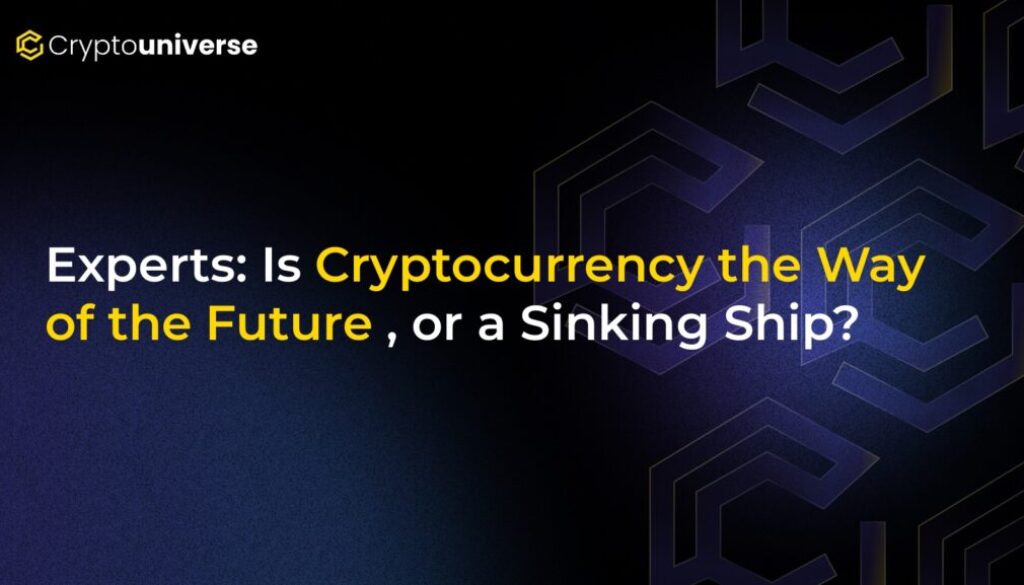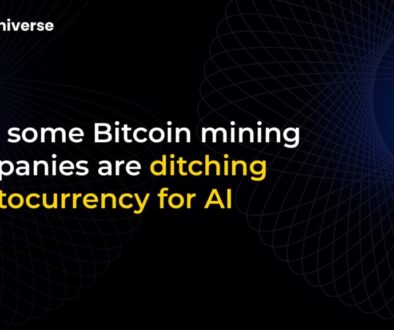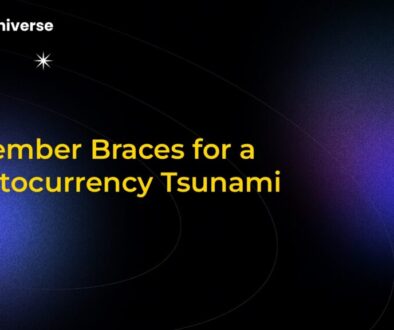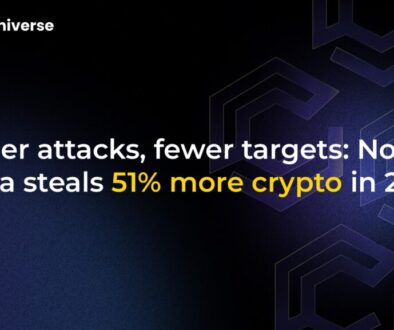Experts: Is Cryptocurrency the Way of the Future, or a Sinking Ship?

Experts: Is <Cryptocurrency the Way of the Future>, or a Sinking Ship?
Love it or hate it, cryptocurrency has crashed into the mainstream. Once a niche topic for tech enthusiasts and cypherpunks, it now dominates financial news, inspires heated debates, and is even on the radar of the U.S. government. The conversation has moved far beyond early adopters to Wall Street boardrooms and everyday investment apps.
But has anything fundamentally changed? Is crypto evolving into a legitimate asset class, or is it still, as billionaire investor Warren Buffett famously quipped, “rat poison squared?” The digital currency world is at a crossroads, with compelling arguments on both sides of the divide. Let’s dive into what experts and market insiders are saying about whether we are witnessing the rise of a new financial era or the slow implosion of a speculative bubble.
The Bull Case: Why Cryptocurrency Could Define the Future
For proponents, the recent momentum is just the beginning of a massive technological and financial shift. They argue that looking at crypto through the lens of traditional finance is like judging the internet based on the dial-up modem. Here are the core arguments for its bright future.
A Turning Point: Mainstream Acceptance and Bitcoin ETFs
Perhaps the most significant development was the SEC’s approval of spot Bitcoin Exchange-Traded Funds (ETFs) in January 2024. This was more than just a regulatory nod; it was a gateway. As noted by Ravi Sarathy, a professor at Northeastern University, this move made it incredibly simple for a vast number of people to gain exposure to Bitcoin. The ETFs effectively built a bridge from traditional finance to the world of digital assets, signaling a new level of legitimacy and making it easier for institutional and retail investors to get on board.
The Core Promise: Decentralization and Financial Freedom
At its heart, crypto’s rallying cry has always been decentralization. Unlike traditional (fiat) currencies controlled by governments and central banks, cryptocurrencies operate on the blockchain—a distributed, immutable ledger with no single point of control. This creates what some call “permissionless, unstoppable financial rails.” In theory, it means anyone can transact and participate without needing approval from a bank or authority, offering a powerful alternative in an increasingly centralized world.
Beyond Currency: The World is Moving On-Chain
The conversation is evolving beyond outdated questions like, “Will we buy groceries with crypto?” The real revolution, according to many insiders, is the idea of the entire world moving “on-chain.” This refers to using blockchain technology for more than just payments. Think smart contracts that automate agreements, decentralized applications (dApps) that can’t be shut down, and tokenized ownership of real-world assets. Many believe the total market capitalization of crypto has the potential to grow exponentially as more of our digital and financial lives are built on this technology.
The Bear Case: Navigating the Risks of a Digital Wild West
For every optimistic crypto bull, there’s a skeptical bear pointing to fundamental flaws and immense risks. They argue that the industry is built on a foundation of hype and speculation, not real-world value.
The Double-Edged Sword of Volatility
Even with growing acceptance, cryptocurrencies are notoriously volatile. Prices can soar or plummet based on speculation, social media trends, or regulatory news. This extreme price instability makes it a poor store of value and an inefficient medium of exchange. As Cecilia Skingsley of Sweden’s Riksbank pointed out, you can’t rely on an asset for daily life if its value fluctuates wildly. Until it can stabilize, crypto will struggle to be seen as “money” in the traditional sense.
A Casino in Disguise? Scams, Speculation, and Sobering Realities
The unregulated and complex nature of crypto makes it a fertile ground for scams. The Federal Trade Commission (FTC) constantly warns of schemes ranging from fake investment managers promising impossible returns to elaborate romance scams. Beyond outright fraud, many critics argue the market itself operates like a casino. The narrative of “we’re all gonna make it” (WAGMI) has soured for many, replaced by the stark realization that the market is often a zero-sum game where inexperienced retail investors become exit liquidity for large players, or “whales.”
The Identity Crisis: From Cypherpunk Ideals to Market Games
The crypto market is no longer a monolith. A significant decoupling has occurred, particularly since 2024, between Bitcoin and the thousands of other “altcoins.” Bitcoin is increasingly being treated as a digital store of value, akin to gold. The altcoin market, meanwhile, is a high-stakes arena of tech startups, meme coins, and pure gambles. The original cypherpunk ethos of self-sovereignty and freedom from state control has, for many projects, been overshadowed by adrenaline-fueled trading where fundamentals are ignored.
The Environmental Elephant in the Room
The environmental impact of some cryptocurrencies cannot be ignored. Bitcoin, in particular, relies on a Proof-of-Work system that consumes vast amounts of energy. Studies have shown that a single Bitcoin transaction can have a carbon footprint equivalent to driving a gasoline-powered car for over a thousand miles. This environmental cost is a major drag on its potential for global adoption and a frequent target of criticism.
The Verdict: A Sinking Ship or a Fleet of New Vessels?
So, is cryptocurrency the way of the future, or is it a sinking ship? The truth is, it’s not that simple. The crypto landscape is no longer a single vessel but an entire fleet navigating uncharted waters.
Some ships, like Bitcoin, are charting a course to become a global store of value, a digital hedge against traditional market instability. Others are high-speed experimental crafts exploring the frontiers of decentralized finance, gaming, and artificial intelligence. Many of these will inevitably sink, but the technology and learnings that emerge could build the foundation for a new digital economy.
We are in the “first slowly, then all at once” phase of a major technological shift. While volatility, scams, and environmental issues remain significant hurdles, the underlying technology continues to develop at a breakneck pace. For investors and observers, the question is no longer a simple yes or no. Instead, it’s about understanding this complex, fragmented, and rapidly evolving ecosystem to determine which parts of this digital future are truly built to last.


